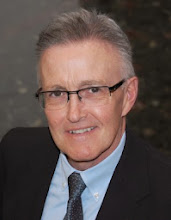
Robert Redford at MWC in Barcelona
By David Farquhar
Here's something that most of us already know: Mobile devices may be the most rapidly spreading technology in our history.
Right now, there are over six billion people on the planet, of which three billion own a mobile phone. Only two billion of us own a toothbrush and only one billion of us have a PC connection to the Internet. So, not only can more of us talk to each other over great distances than can brush our teeth, but also it’s likely that most of us will see and experience the Internet and all its possibilities for the first time via a screen smaller than a playing card.
The network operators have invested billions of dollars putting in place the infrastructure to offer ever-increasing bandwidths. In Australia, 14.4mbps service is now available, making the viewing of ever-richer content feasible. The handset manufacturers are focused on shipping ever more capable 3G integrated devices (those with multimedia and Internet functionality built in) - the Apple iPhone and the Sony Ericsson W910 being prime examples. Almost every technology company on the planet is supplying electronics and software tools components and applications to these players.
But, it’s not just about the technology, or even about the services. One message that was crystal clear at MWC in Barcelona is this is an entertainment medium, and the sooner we recognize that connecting the entertainer to the audience is what matters most, the sooner everyone will start focusing on audience and delivering quality mobile content.
Why did music group Radiohead invite people to download their last album for a price determined by the user? Why do musicians and acts like will.i.am and the Black Eyed Peas encourage fans at their concerts to film them using their mobiles then distribute that content? Why do they make tracks and videos for free distribution via YouTube and MySpace? Simply because they make more money from selling tickets at live concert venues (since pick-up-and-go mobile media enhances but doesn't replace the live experience), and from merchandise and downloads than they do from CDs. But, the content has to relevant and current.
The mobile Internet is a powerful persuader. When Barack Obama made his “Yes We Can” speech on Super Tuesday, will.i.am cut the video, overlaid a sound track and performance involving celebrities and made it available free via the Internet and mobile within 24 hours. Within a week they had more than 20 million impressions, andn sicne that time Obama has gone on to virtually sweep every state primary – up until Hillary Clinton's recent comeback kick. (www.youtube.com/watch?v=2fZHou18Cdk).
Clinton has made some use of the Internet – most memorably through her Sopranos parody with husband Bill – but has done relatively little since then. She does make use of the talk show route – appearing on popular Saturday Night Live – but she'll have to do more than that to get her messaging to people who are mobile and rely on their phones for mobile information.
Mark Selby head of Multimedia at Nokia agrees that we should stop using phrases like “user-generated content” and realize that people with smart phones are content creators and distributors and should be getting paid; not patronized or stopped.
The same is increasingly true of other genres: British Violinist Tamsin Little made her last album “Naked Violin” free to download to encourage listeners to hear new composers. Jazz, opera and traditional music styles are also reporting increasing interest from mobile and PC download media.
BBC Worldwide see mobile as a subset of IPTV and web TV: a place to push out diced and sliced repeats of its key brands such as Top Gear and Dr Who. Some times this works but on the other hand the BBC has appointed a Controller of Mobile, Matthew Postage, whose remit to understand better how we interact with and relate to the mobile medium, which requires specialist content and services. And do we really think that we can replicate the shared, cinema experience on a phone? Iconic director David Lynch certainly doesn’t think so (www.youtube.com/watch?v=SWkWGXXIHw8).
Robert Redford sees mobile as a medium where another classic genre, this time short film, can have a new lease of life. Better suited to the way we interact with mobiles, short film used to be highly popular in cinemas but now a new generation of filmmakers see mobile as a way to revitalise the type. Redford’s Sundance Channel has recently commissioned a series of short edutainment films from Isabella Rossellini about the sex life of insects (www.sundancechannel.com/greenporno).
Other examples of made-for-mobile films can be see at the Royal Scottish Academy of Music & Drama’s mobile media portal www.rsamdmobile.com and the GSM Association’s www.mofilm.com.
So the industry as a whole is very confused about what the viewer really wants but it seems to recognize that its priorities lie in a cross-platform future that includes mobile devices, wireless Internet appliances, and even your automobile. More on that in a later posting. Meanwhile, welcome to the world of the 4th Screen!



